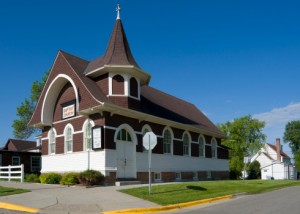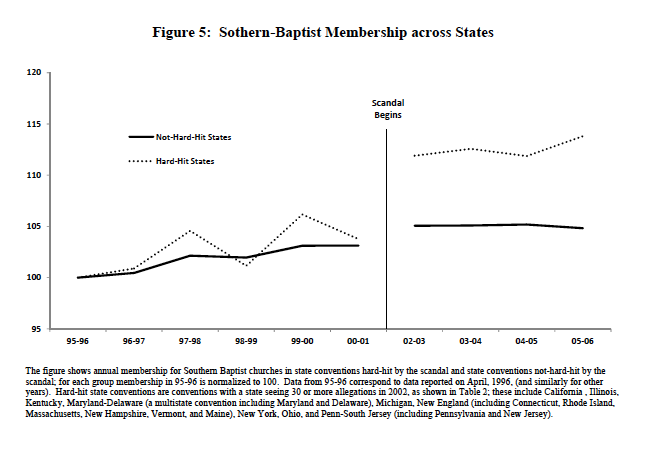Catholic Losses Are Baptist Gains
In the zero-sum game of competitive markets, one company’s misstep is often a rival’s gain. But what about in the marketplace of religion?

(iStockphoto)
A new study (PDF here) titled “Substitution and Stigma: Evidence on Religious Competition from the Catholic Sex-Abuse Scandal,” by Notre Dame economist Daniel Hungerman, looks at whether other religious faiths gained from the Catholic Church sex abuse scandal. Using data from 1990-2007, Hungerman finds significant spillover effects on other religious groups.
The big winner? Baptist churches, both financially and in membership growth.
Here’s the abstract:
This paper considers substituting one charitable activity for another in the context of religious practice. I examine the impact of the Catholic Church sex-abuse scandal on both Catholic and non-Catholic religiosity. I find that the scandal led to a 2-million-member fall in the Catholic population that was compensated by an increase in non-Catholic participation and by an increase in non-affiliation. Back-of the- envelope calculations suggest the scandal generated over 3 billion dollars in donations to non-Catholic faiths. Those substituting out of Catholicism frequently chose highly dissimilar alternatives; for example, Baptist churches gained significantly from the scandal while the Episcopal Church did not. These results challenge several theories of religious participation and suggest that regulatory policies or other shocks specific to one religious group could have important spillover effects on other religious groups.
Though the numbers are rough, they do speak to the size of the impact. A loss of two million members constitutes about 3 percent of all Catholics. The $3 billion in donations it generated also represents about 3 percent of all religious giving per year. Hungerman uses this helpful chart to track the post-scandal increase Baptist churches saw in membership, particularly in areas where there were a lot of allegations of sexual abuse.
 That fleeing Catholics choose to substitute into “dissimilar alternatives,” such as Baptist churches, rather than seeking what would likely be more familiar environs, such as Episcopal churches, indicates just how damaging the scandals were. Those who left sought an experience as completely different as possible in a lot of cases.
That fleeing Catholics choose to substitute into “dissimilar alternatives,” such as Baptist churches, rather than seeking what would likely be more familiar environs, such as Episcopal churches, indicates just how damaging the scandals were. Those who left sought an experience as completely different as possible in a lot of cases.

Comments